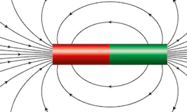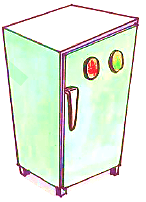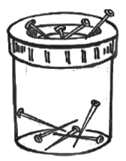Discovery of Magnets
Discovery of Magnets: Overview
This topic covers concepts, such as Electromagnetic Crane, Natural Magnet, Artificial Magnet, Magnetite, Cylindrical Magnet, Ball-Ended Magnet, Magnet, Discovery of Magnets, etc.
Important Questions on Discovery of Magnets
A freely suspended magnet always rests pointing in the North-South direction. This property is called _____ property.
What is the other name for leadstone which is a magnetic rock named due to its directive property?
Which one of the following is a natural magnet?
(Choose from lodestone or bar magnet).
A cylindrical magnet has only one pole.
The cylindrical magnet has very high levels of magnetism from a relatively small surface pole area.
Artificial magnets are prepared in cylindrical shapes also.
This is a cylindrical type of magnet.

Which magnet is prepared in a cylindrical shape with the balls at each end?
Correct the statement given below:
Bar magnet is prepared in a cylindrical shape with the balls at the end.
Which one of the following is a ball-ended magnet?
A ball ended magnet is an example of a natural magnet.
Identify the types of artificial magnets from the given list.
Raman had four objects P, Q, R and S in his bag. He wanted to know whether they were magnets or not. He placed each object near a paper clip, iron rod and a pencil.
He observed and recorded the data as given.

Which of the following are magnets?
Name the country in which magnet was discovered.
What is a magnetite (lodestone) called now?
Read the given statement. Find out the appropriate answer for it and then search the word.
| M | A | G | N | E | T |
| A | P | O | L | E | O |
| T | Y | C | T | A | I |
| I | N | O | R | T | H |
| O | B | B | S | P | C |
| M | C | A | O | T | P |
| N | Q | L | U | S | W |
| B | Z | T | T | X | R |
| S | Y | T | H | O | B |
A natural stone that attracts iron and steel materials.
You see some metal stickers stuck to the door of a fridge in the picture given below.

What is there in those stickers which make them stick to the iron doors?
Some pins are attached to the top or cap of the pin holder in the image given below.
What could be there in the cap of the pin holder?

